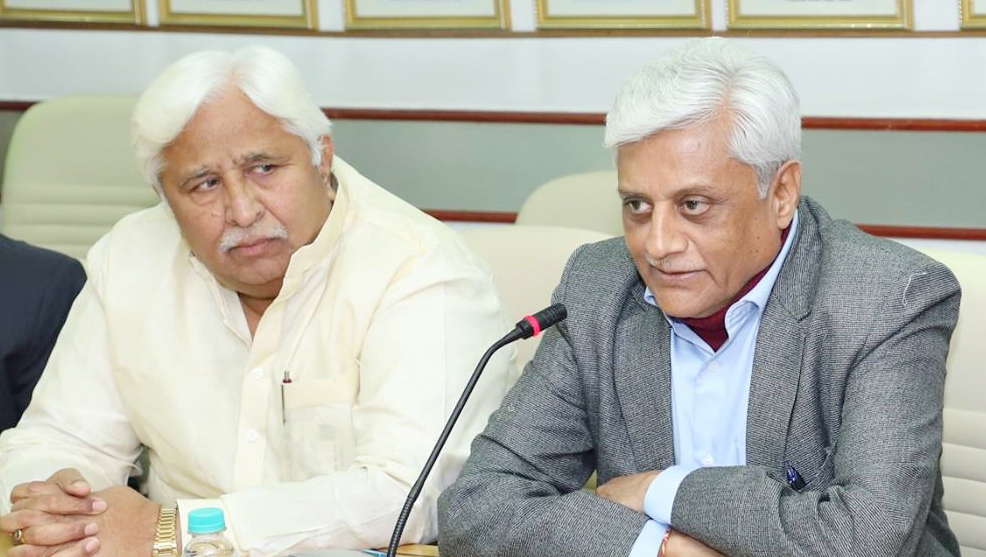Nafcub President Jyotindra Mehta has sought a slew of concessions from the RBI in the wake of slowdown of economy due to the Corona scare and these include concessions in classification of NPA, CRAR limit, extension in Direction on UCBs, among others.
Mehta, through a letter to the RBI governor says “You are well aware that UCBs cater to the financial needs of the poor, small business, retail trade, MSME, housing and SHG/JLG, etc. The above segments having major exposure in credit portfolios of UCBs, have been feeling the brunt of slowdown in the economy during the entire financial period ending March 2020.”
The lockdown due to COVID 2019 has accentuated the problem of disruption and has hit sales and revenues leading to increasing cash flows problems. Several borrowers have seen their Debt Equity ratios, Return on Capital go for a toss. Further, the cash flows have also been impacted due to market pressures, reads the letter made available to Indian Cooperative.
All the major UCBs and their District/State Federations are raising their concerns about the MSME loans and loans extended to manufacturing and real estate sectors where fresh NPAs are imminent as the operations of all these segments of borrowers may not be normal soon, reads the letter.
The consumer durables, transport operators and jewellery traders may also take a long time before there is a demand revival. As per the leading rating agencies, asset classes such as micro finance, SME borrowers and unsecured loans including LAP segment will see continuing pressures on asset quality due to weaker profile of these borrowers, reads the letter.
The above position indicates that there would be a considerable spike in the level of NPAs in banks in general and UCBs in particular as UCBs by nature have adverse selection of borrowers. Their restricted ability to raise capital and the onslaught of competition from other lenders and limited resources for continuous upgradation of technology adds to their disadvantage, goes on the letter.
It can therefore be estimated that the level of NPAs may double by 31st March 2020 from September 2019. Needless to mention, an unprecedented situation which is not of banks’ making, requires a quick response and out of the box thinking to tackle the enormous damage likely to be caused by it.
It is therefore requested as under:-
“In view of the extraordinary global situation and in the country, all types of loans including Term Loans, working capital/overdraft credit facilities and other loans may be permitted to be classified as per 180 day norm with effect from January 01, 2020 till the normalcy is restored.
Forbearance may also be granted for provisioning for NPAs identified due to 90 days norms which may be kept in abeyance. The existing norms for classification of overdue accounts may accordingly be revised to consider overdue for 0 to 60 days in category SMA-0, overdue for 60 days to 120 days in SMA1 and overdue from 120 days to 180 days in SMA 2 categories.
Further identification of NPAs on an ongoing basis and the consequent provisioning in every quarter may not be insisted upon by RBI. The concept of record of recovery as strictly defined in RACP norms may not be implemented strictly. And the Inspecting Officers may be sensitized in this regard.
All loan accounts including personal and retail loans which have been classified as SMA-0 to SMA 2/ NPAs may be permitted for restructuring/rescheduling without provisioning and downgrading as required as per extant instructions.
Interest accrued but not received during January to March 2020 may be permitted to be converted as WCTL and paid in fixed instalments.
Any excess provisioning held by any UCB as a consequence of the above may be reckoned as a part of capital funds for the purpose of CRAR and net worth as on March 31st, 2020.
The stringent parameters of CAMELS rating may be kept in abeyance to ensure that there is no steep hike in C and D rated UCBs as on March 31st, 2020.
Further the UCBs placed under Direction under Section 35A of B.R Act 1949(AACS) may be granted a further time of one year for turnaround or revival through merger and amalgamation, the letter demands.













































